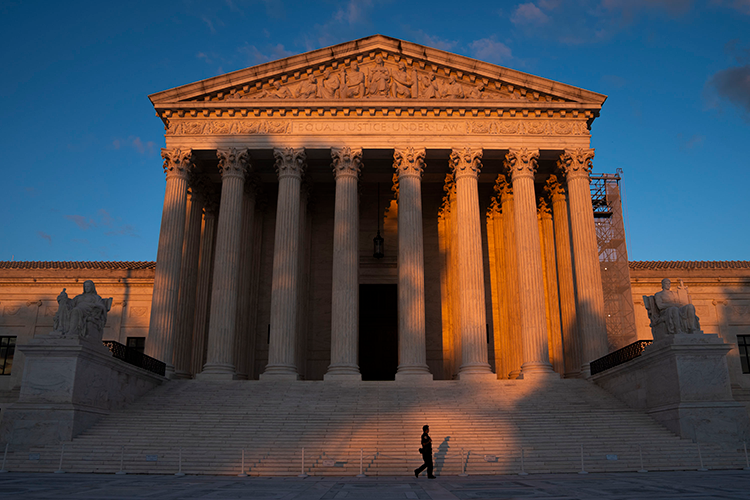Supreme Court will hear Louisiana map case with impacts for Black voters

The Supreme Court's decision in the Louisiana case will not impact the 2024 election. (Photo by Allison Robbert/The Washington Post)
The Supreme Court on Monday agreed to hear a complex dispute over how Louisiana draws congressional maps that could affect the power of Black voters in the state and the balance of power in Congress.
The case will not impact Tuesday’s election since it won’t be decided for months, but legal experts said it could have significant ramifications for how states consider race in drawing congressional districts to comply with the Voting Rights Act—and therefore could impact future elections.
The dispute began when a group of Black voters and civil rights groups challenged how the Louisiana legislature drew its congressional maps after the 2020 census.
Only one of the state’s six congressional districts had a Black majority, even though African Americans comprise about a third of the state’s electorate. Federal courts sided with the plaintiffs, ruling that the map probably violated the Voting Rights Act.
The Louisiana legislature then redrew its congressional map in January, creating two Black majority districts, including one that stretched across the state from Shreveport to Baton Rouge. That map gives Democrats a good shot at picking up a second seat in Louisiana’s congressional delegation. It complied with the court ruling, but also protected the seats of House Speaker Mike Johnson and Majority Leader Steve Scalise, both of whom are Republicans.
A group of self-described “non-African American voters” sued over the new map, saying it was an unconstitutional racial gerrymander that violated the equal protection clause of the Constitution.
A special judicial panel agreed in a 2-1 ruling in April that barred the state from using the new map. With time running short before the November election, the Black voters and civil rights groups asked the Supreme Court to put that ruling on hold.
The Supreme Court sided with the plaintiffs in May, restoring the map with two Black districts for the November election. The ruling, which the NAACP hailed as a victory for Black voters, resulted in an unusual political alignment among the court’s justices.
Conservatives ruled in favor of the map with two Black districts, while the court’s three liberals—Sonia Sotomayor, Elena Kagan and Ketanji Brown Jackson—noted their opposition to the majority’s unsigned decision. Sotomayor and Kagan did not comment on their reasoning.
Jackson wrote that the “question of how to elect representatives consistent with our shared commitment to racial equality is among the most consequential we face as a democracy,” but she objected to the Supreme Court getting involved at this point in the litigation.
Louisiana officials then pleaded with the Supreme Court to hear full argument on the case and issue a ruling later this term.
“The State is stuck in an endless game of ping-pong—and the State is the ball, not a player,” the officials wrote in legal filings. “Without this Court’s intervention, the State will be sued again no matter what it does.”
During the term that concluded in June, the Supreme Court allowed South Carolina to use a map that a lower court said weakened minority voting rights. Last year, however, the Supreme Court barred Alabama from using a new congressional map that it found diluted the power of Black voters.
The Supreme Court will hear oral arguments in the Louisiana case next year and will probably issue a ruling by the end of its term this summer.



